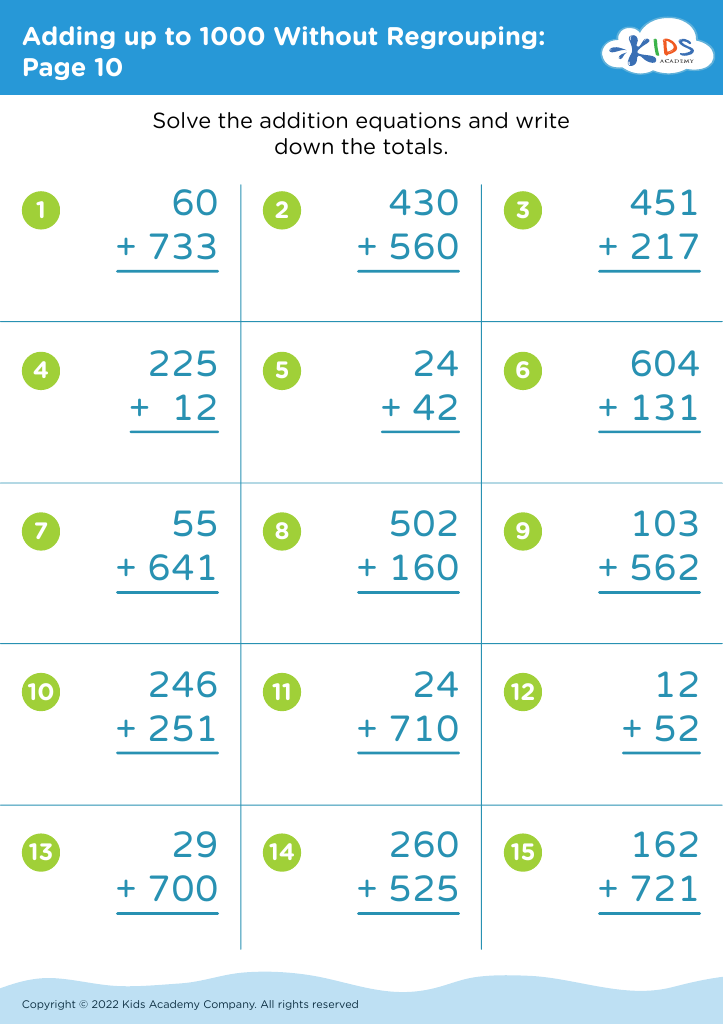Practicing addition Worksheets for Ages 5-9
7 filtered results
-
From - To
Unlock the fun of learning mathematics with our Practicing Addition Worksheets for Ages 5-9! Carefully designed to engage and challenge young minds, these worksheets offer a variety of activities to enhance addition skills. Kids Academy provides colorful, thought-provoking exercises that make learning addition enjoyable and effective. From simple sums to more complex problems, these worksheets cater to different skill levels, ensuring incremental learning and confidence building. Perfect for home or classroom use, they help children develop essential math foundations in an interactive and exciting way. Start your child's math journey with our comprehensive addition worksheets today!
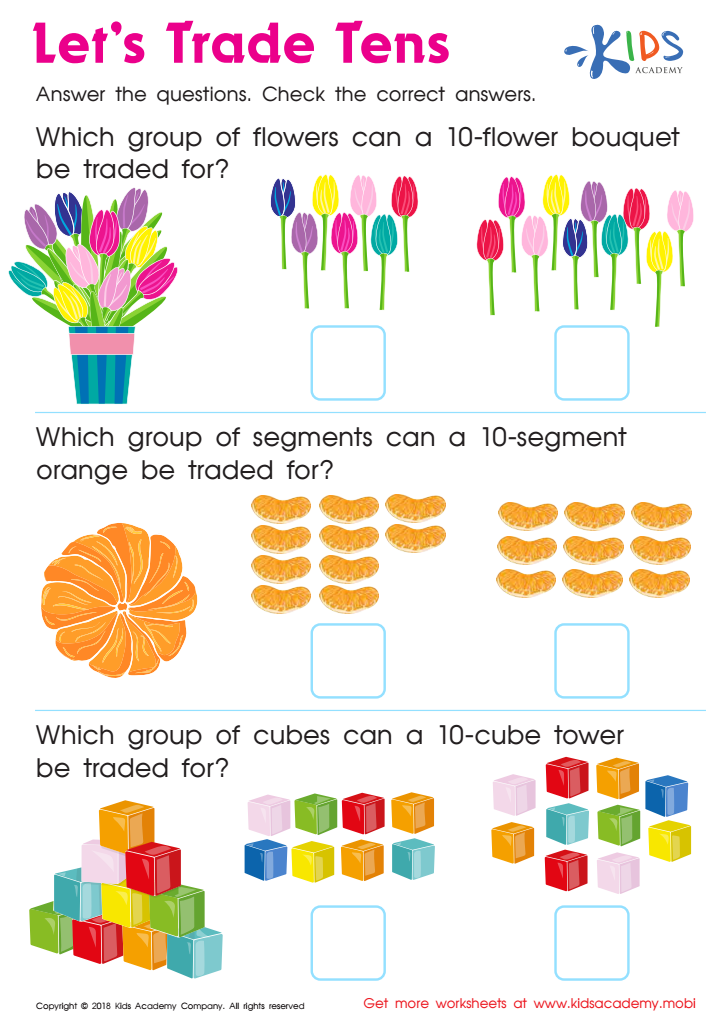

Lets Trade Tens Worksheet
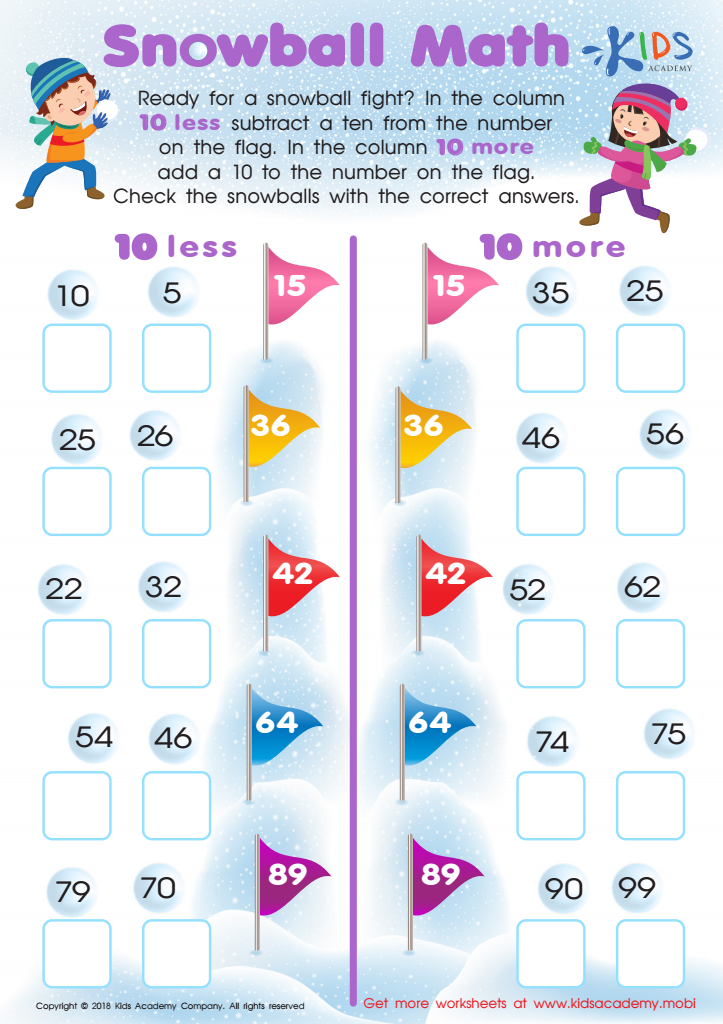

Snowball Math Worksheet
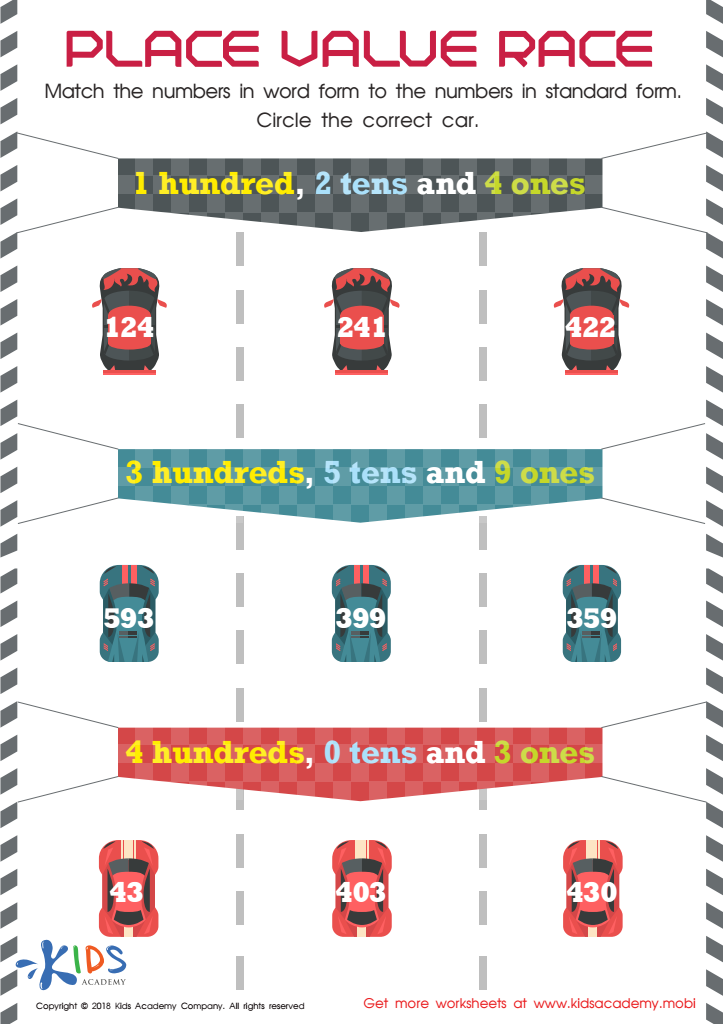

Place Value Race Worksheet
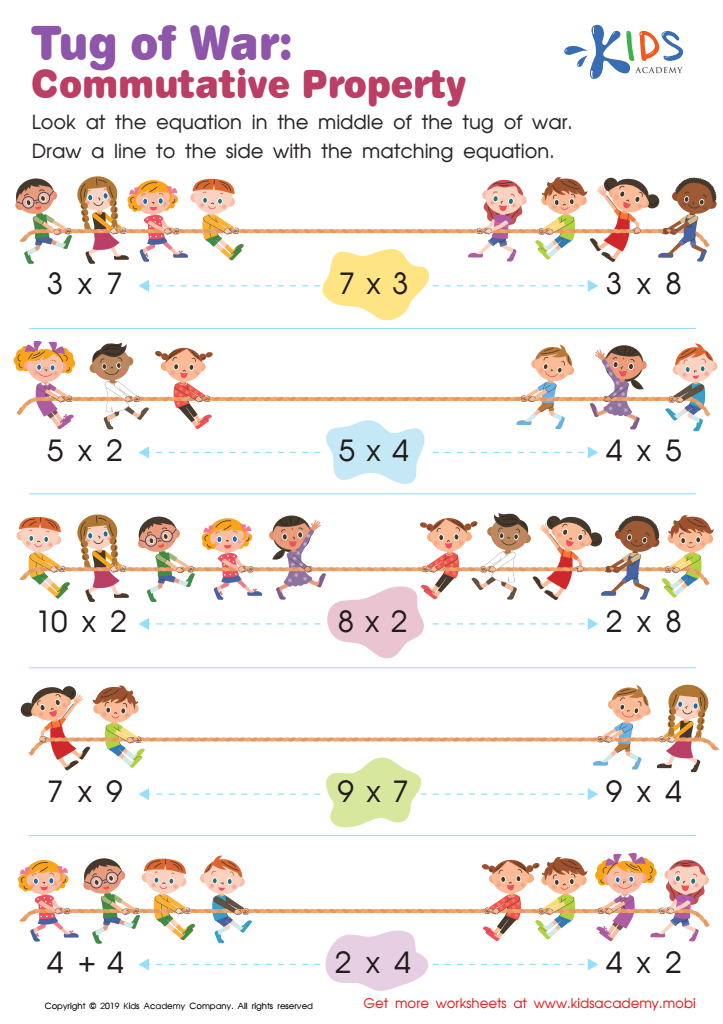

Tug of War: Commutative Property Worksheet
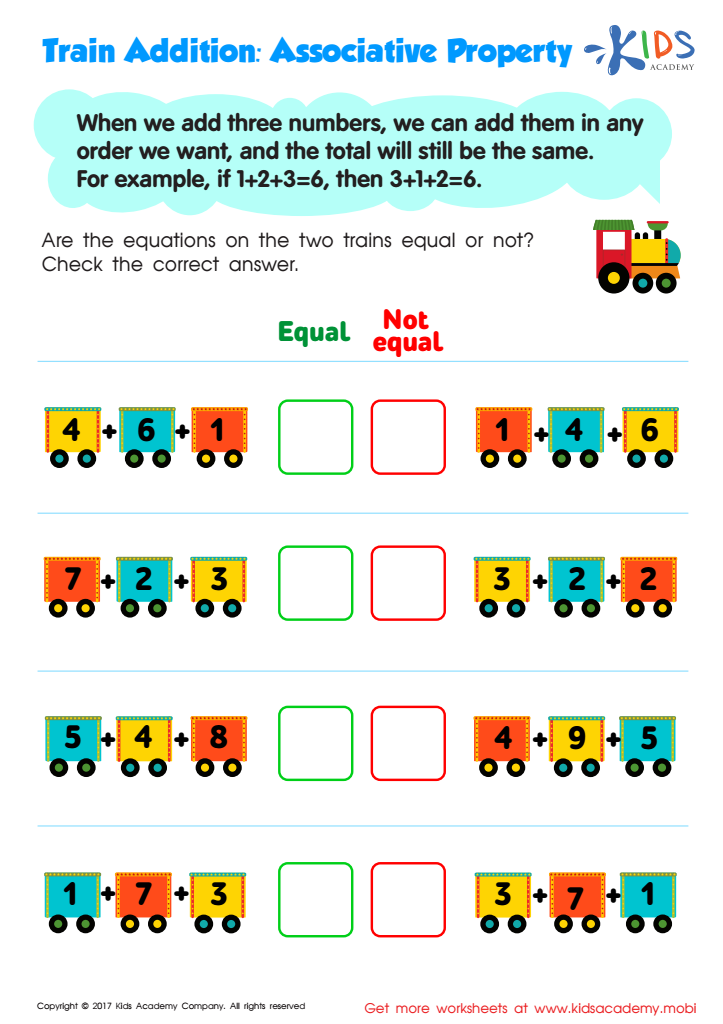

Train Addition: Associative Property Worksheet
Practicing addition is a cornerstone of mathematical understanding, especially for children ages 5-9. At this early stage, mastery of basic addition helps form a strong foundation for all future math concepts, including subtraction, multiplication, and division. When children repeatedly practice addition, they develop number sense—a vital skill that allows them to understand and work with numbers flexibly and confidently.
Parents and teachers play a crucial role in fostering this understanding by making learning engaging and accessible. Consistent practice of addition helps to improve memory and problem-solving abilities. Moreover, it encourages logical thinking and builds self-confidence as children take pride in their ability to grasp new concepts.
Adding numbers is not just a mathematical exercise but integral to daily life applications, such as counting money, telling time, or even playing games. Equipping children with these skills early on helps them navigate various situations with ease.
Involvement in practice sessions together encourages bonding and a collaborative learning environment. Importantly, developing a good grasp of addition during the ages of 5-9 lays the groundwork for academic success, fostering a positive attitude toward mathematics and lifelong learning. Investing time in helping children practice addition can lead to significant long-term educational benefits.

 Assign to the classroom
Assign to the classroom

